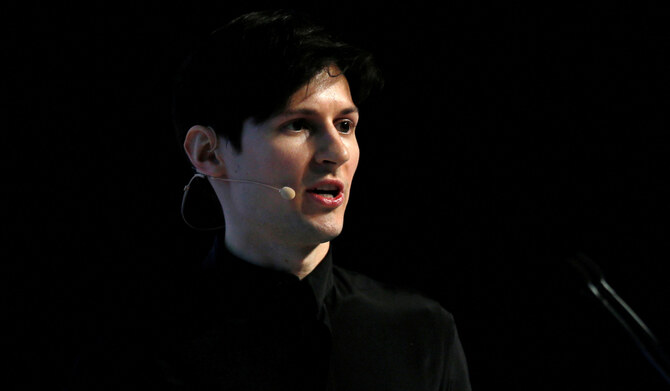Pavel Durov
Pavel Durov, the Russian-French billionaire and founder of the popular messaging app Telegram, was arrested on Saturday evening at Bourget airport, located just outside Paris.
The arrest, reported by French news outlets TF1 TV and BFM TV, was based on information from unnamed sources. Durov was reportedly detained while traveling aboard his private jet. According to TF1, an arrest warrant had been issued for Durov in France as part of a preliminary police investigation.
The investigation, as highlighted by both TF1 and BFM, centers on the lack of moderators on Telegram, which authorities believe has allowed criminal activities to flourish unchecked on the platform.
Telegram, an encrypted messaging service, boasts nearly one billion users worldwide and is particularly popular in Russia, Ukraine, and other former Soviet republics.
It is considered one of the leading social media platforms, alongside giants like Facebook, YouTube, WhatsApp, Instagram, TikTok, and WeChat.
Despite the severity of the situation, Telegram did not immediately respond to requests for comment. Additionally, the French Interior Ministry and police declined to make any statements regarding the arrest.
Durov, who was born in Russia, founded Telegram in 2013 with his brother. The following year, he left Russia after refusing to comply with government demands to shut down opposition communities on his previous social media platform, VKontakte, which he later sold.
Durov has been outspoken about his commitment to freedom, once telling U.S. journalist Tucker Carlson that he would “rather be free than take orders from anyone.”
His exit from Russia led to a search for a new home for his company, which has since seen stints in Berlin, London, Singapore, and San Francisco.
Since Russia’s invasion of Ukraine in 2022, Telegram has emerged as a crucial platform for unfiltered, and at times graphic, content from both sides of the conflict.
The platform is heavily used by Ukrainian President Volodymyr Zelenskiy and his officials, as well as by the Russian government, making it a ‘virtual battlefield’ for the ongoing war.
For many Russians, Telegram has also become one of the few remaining avenues to access independent news about the conflict, especially after the Kremlin tightened its grip on independent media.
In response to Durov’s arrest, the Russian foreign ministry announced that its embassy in Paris was working to clarify the situation. The ministry also called on Western non-governmental organizations to demand Durov’s release.
The arrest has sparked outrage among Russian officials, with Mikhail Ulyanov, Russia’s representative to international organizations in Vienna, accusing France of acting like a dictatorship.
Ulyanov suggested that individuals who play a significant role in the international information space are increasingly unsafe in countries he described as “moving towards more totalitarian societies.”
Elon Musk, the billionaire owner of X (formerly Twitter), also weighed in on the situation, sarcastically remarking that “It’s 2030 in Europe and you’re being executed for liking a meme” following reports of Durov’s detention.
The incident has also prompted calls from Russian bloggers for protests at French embassies around the world.
The arrest of Durov, whose fortune is estimated by Forbes at $15.5 billion, highlights the growing scrutiny Telegram faces from governments across Europe, particularly regarding security and data breach concerns.
Despite the pressure, Durov has maintained that Telegram should remain a “neutral platform” and not become a “player in geopolitics.”
However, with his arrest, the challenges facing the platform and its enigmatic founder have reached a new level of intensity.


